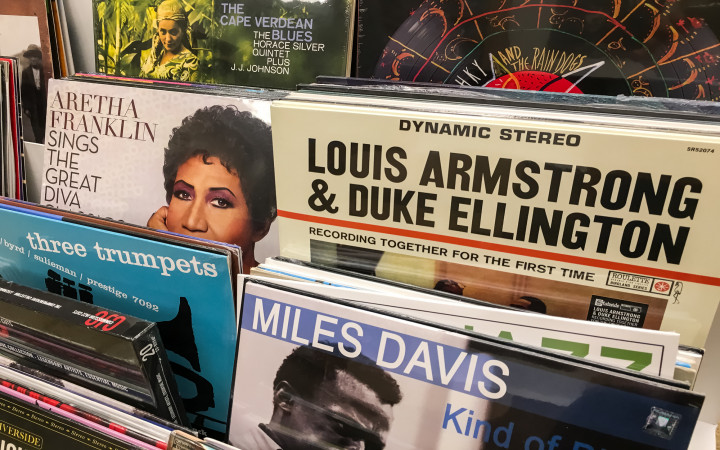Today’s Wonder of the Day was inspired by Krystel. Krystel Wonders, “Who was Duke Ellington?” Thanks for WONDERing with us, Krystel!
This Wonder of the Day isn’t about a king or a queen. It’s not even about a princess or a prince. Instead, it’s about a duke. He wasn’t a ruler of land or castles, though. Instead, he was a duke of music. Who are we talking about? Duke Ellington, of course!
Of course, his name wasn’t always Duke. At birth, his parents named him Edward Kennedy Ellington. He was born in Washington, DC, on April 29, 1899. He later earned the nickname “Duke” for being well-mannered.
Ellington’s talent was obvious from an early age. He began playing piano at age seven and developed a love for painting as a teenager. In fact, he was offered a scholarship to study art at the Pratt Institute. However, he turned down the scholarship and chose to become a professional musician at age 17.
After making a name for himself as a pianist in Washington, DC, Ellington moved to New York City. There, he started a jazz band called The Washingtonians in 1923. The band became part of the celebration of Black culture and art known as the Harlem Renaissance.
Over a span of five years, they played regularly at many clubs一including five years as the house band for Harlem’s Cotton Club. They also changed their name a few times. Many people know them as the Duke Ellington Orchestra.
Ellington helped usher in the Big Band era of jazz music. His band grew from six to 10 and eventually 14 members. What made the group truly stand out was its emphasis on unique soloists and individual musicians. Ellington became known as a talented composer. He wrote music that highlighted the individual styles and talents of each band member.
This was very different from most music of the time. Other bands tried to blend their individual sounds into one. Ellington, on the other hand, wrote music that emphasized the different sounds produced by the trumpet, trombone, saxophone, piano, and other instruments.
As a composer and musician, Ellington also formed many strong partnerships with other artists. He worked closely with Billy Strayhorn, Harry Carney, and Cootie Williams. He also performed with Ella Fitzgerald and Louis Armstrong. They contributed to some of the most famous Duke Ellington songs. A few examples are “Take the A Train,” “Mood Indigo,” and “It Don’t Mean a Thing.”
Big Bands went out of fashion after World War II, but Duke Ellington kept making music. In fact, he composed songs and performed music well into his 70s. He was awarded the Medal of Freedom by President Richard Nixon in 1969 and an honorary doctorate degree from Yale University in 1967.
Duke Ellington passed away at the age of 75 on May 24, 1974. He led his band until shortly before his death. Ellington’s last words were, “Music is how I live, why I live and how I will be remembered.” He was right. Decades after his death, Ellington is still remembered as one of the greatest jazz musicians, band leaders, and composers of all time.
Standards: CCRA.R.1, CCRA.R.2, CCRA.R.4, CCRA.R.10, CCRA.W.2, CCRA.W.4, CCRA.W.9, CCRA.L.1, CCRA.L.2, CCRA.L.3, CCRA.L.6, CCRA.SL.1, CCRA.SL.2




